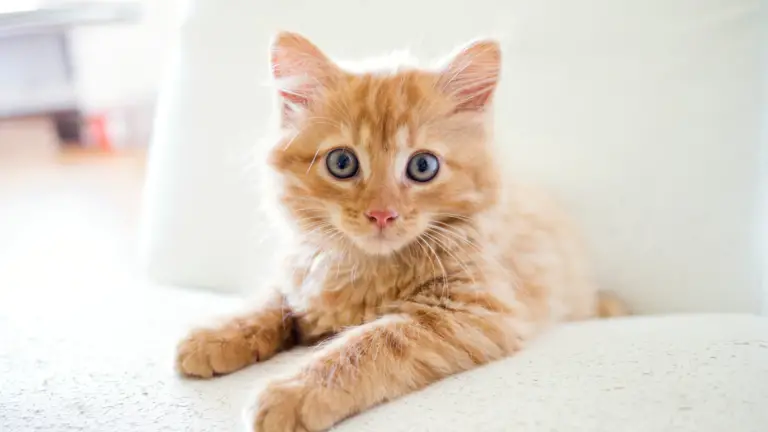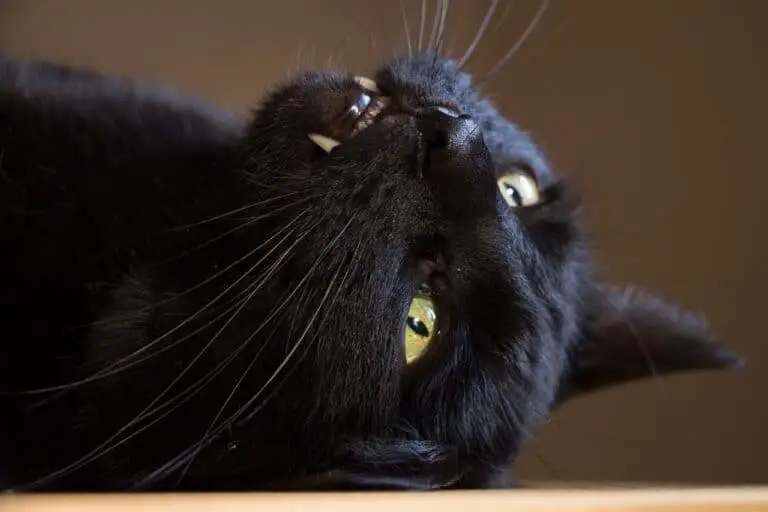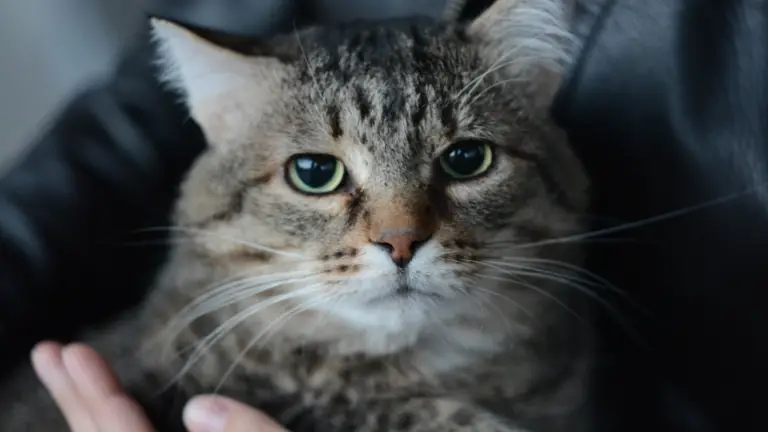HOW TO HISS LIKE A CAT| CATS HISSING EXPOSED
How to hiss like a cat? Do you ever wonder how to replicate a cat hissing? Well, you are in the right place to find out all about cats hissing.
Cats usually hiss because they want to warn you or other animals to stay away. If they hiss at you, they tell you to stay away, or there will be consequences. If you want to replicate a cat hissing, you have to try to make a lion roar with lower tones, like a lion cab roaring!

HOW TO HISS LIKE A CAT
I do not know that hissing back at your cat, or any cat is good or will necessarily accomplish a result. However, if you want to hiss like a cat, you have to replicate a small roar sound, or you could try to intake air from your mouse through your teeth.
Those two methods could replicate a cat hissing.
Cats generally do not hiss at people or other animals unless they think there is a threat to them or their environment. I do not know about your cat, but my cat normally hisses at strangers, not all of them, and other cats when they come into the house.
The vacuum cleaner is my cat’s favorite object to hiss, even if it is not running. So it is only necessary I take it out of the closet for my cat to start hissing at it, pawing at it, and running right away under the bed.
Why would anyone want to hiss back at his cat? I would not do it. However, sometimes cats understand they have to calm down if another “cat” hisses at them.
IS IT OK TO HISS AT MY CAT?
Hissing is a way for a cat to tell others to go away. Cats want to tell others that they are doing something annoying, are not welcome, and feel threatened. Ultimately it is a way to intimidate others from attacking, showing how dangerous they are.
In general, hissing at a cat could be ok in extreme circumstances if you want your cat to stop doing something you think should not be done. However, cats could ignore you, and it might not get any result.
Here is a little tutorial on cat hissing:
WHY DO CATS HISS?
In part, we went over the answer to this question; however, let’s make it more straightforward: cats hiss primarily as a warning of an imminent attack to make the source of threat or menace doesn’t stop immediately and go away.
Cats may also hiss for other reasons unrelated to sending a threat to others. Therefore cats hiss because:
1. WARNING
They tell others to back off. It can be another cat entering the house, a human they do not know coming into their territory. A mother cat, for example, can hiss in an attempt to protect her kittens from others.
2. YOU MAKE THEM DO SOMETHING THEY DO NOT WANT
In my experience, it happens with my cat all the time, not only when I bring him to the vet, and the vet touches him. My cat is susceptible to human touch. If he wants to be in a spot, and I pick him up and move him to another location, he can start hissing at me.
Therefore if you make your cat go somewhere or do something he doesn’t like, you can expect him to hiss at you. I have lived with my cat for two years now, he knows me very well, but he still hisses at me in those instances.
But I can see that his hiss at me are more of a request than a threat, he wouldn’t attack me, but at least I understand he doesn’t like something.
3. THEY ARE IN PAIN
Cats could hiss if they are in pain; if there is a painful part of their body that someone is touching.
This actually can be an indicator of pain or sickness; therefore, if a cat starts hissing for no reason, he may be sick, and it is time to go to the vet.
4. THEY ARE PLAYING
Sometimes cats are playing, and they hiss to each other when the play can be a bit rough, but you can see they are playing if you look.
5. TERRITORY
This is more obvious when a new cat comes into the house; even when they settle and are “friends,” if the new cat goes too close to the first cat’s kennel, it may end up with a hiss and growl. Territory issues between cats and other pets can be the reason for cats hissing at others.
Treat Your Cat!










WHY DOES MY CAT RANDOMLY HISS AT ME?
It is not that random if your cat hisses at you. Your cat may be scared of something; maybe you moved too fast, got scared, or made a gesture he did not like. You may have raised your voice or made a sound that sounded threatening to him.
Even the smell you have picked up somewhere can be a reason for your cat to hiss at you. However, if you spend some time with your cat, you may understand why he hisses at you.
There may be another reason, maybe your cat is in pain, and he will start hissing if he does. But, again, it can indicate that it is time to go to the vet.
WHY DO FRIENDLY CATS HISS?
I have a little kitten I just adopted, my father was changing a lamp, and on stepping back, he ended up with his foot on the kitten’s back. She started hissing at him and ran away.
The kitten is totally fine. My father did not see her because she just tried to sneak up on him to grab his foot without realizing that she was about to be hit. This kitten is lovable and friendly, she would rarely hiss anything, but she got stressed and afraid and did it.
It may be that a friendly cat gets scared and hisses. A scary event triggers the instinct of a cat to hiss. It is normal behavior for cats to hiss. They have to do it in nature to stay alive. An indoor cat doesn’t need to do it that often.
UNDERSTANDING CATS LANGUAGE
If you’re not a follower of cat research, I’m happy to present a breakthrough study on the matter.
This new study has shown us something fascinating about how animals think and comprehend us. The results indicated that felines have an astounding ability to understand our words.
They can understand the human language! So you do not need to learn how to hiss like a cat when you can learn a better way to communicate with cats.
Japanese researchers in Tokyo uncovered this trait, which separates domestic house cats from all other large, wild felines (tigers, lions, etc.). The smallest and cutest ones of them all are the most verbally sophisticated. So it appears house cats have evolved to understand us as part of their domestication.
- They understand us by our pitch. They can tell if we’re angry or want to hug them.
- They can understand us in our words. They know their name, name and other titles we assign to things around the house or activities.
- And most fascinating of all, they’ve evolved to mirror us. In the wild, cats prefer to be pin-drop quiet. They are hunters that catch prey by closing distance through silence and camouflage, followed by a brief sprint. When cats communicate with each other, the primary device is their body, not their vocals.
And yet, with you and me, cats constantly break this rule. Why though?
HOW DO CATS COMMUNICATE WITH HUMANS?
It is maybe easier in our minds to imitate them and try to learn how to hiss like a cat or meow as they do.
Again, it goes back to domestication. Watching humans communicate with each other through voice, cats have learned to mirror us.
The fascinating thing about this brain-level chance is that cats have developed a language of their own.
Yes, it can be deciphered. In fact, it already has. This is what the Cat Language Bible by Jonas Jurgella is in a nutshell. Years of research into the human to feline communication, condensed and compressed into a simple guide that anyone can pick up and use on-the-fly with their cat.
- Use it to interpret cat sounds as they’re happening. Now you can finally understand if your cat is sick or just energetic.
- Read his thoughts by reading his body. It’s tough to know when your cat wants to be left alone versus when he’s genuinely sad and feeling secluded. Now you can tell using some verbal and nonverbal giveaways common to all felines.
- Speak to him in a way that he can understand. Cats may not have the advanced language capability that humans do — yet they make sounds that can also be understood and interpreted by us.
- Would you like to say something to your cat that he could understand on his terms? The Cat Language Bible™ will tell you how to do it.
See the FREE video here for more information.
In my opinion, as a cat owner, this is a must-have in any animal household.
Pick it up, and see how much closer a connection you can build with your feline through the power of direct human-to-cat conversation. What you know, you may even learn how to hiss like a cat!
Read also: DO CATS HOLD GRUDGES? WHY, HOW LONG, AND ADVICE
FREQUENTLY ASKED QUESTIONS
Can humans hiss?
Humans normally do not hiss. It is not normal behavior for a person. But a human can learn how to hiss, with some practice. If a person works a lot with animals, could, in the end, take their behavior and start doing things that animals would do. One could also do it because of wanting to communicate better with other animals.
Why would someone want to know how to hiss like a cat?
Someone may want to hiss like a cat to play with their cats, test their reaction, or only have fun. People who are very affectionate to cats may like to imitate cats and better understand them. It is not uncommon to find cats lovers meowing back at cats and having a full conversation with cats. It is not that crazy, after all.
Is hissing always aggressive?
Cats seem aggressive when they hiss, but they are trying to protect themselves from others. Hissing is not synonymous with aggression. Instead, it is a sign that your cat is annoyed; if the cat is hissing, he usually is the effect of something rather than the initiator of a fight.
Why do cats hiss at babies?
Cats are usually very affectionate and protective of babies. The only weak point in this reasoning is that babies like to touch, pull, and otherwise threaten a cat like a toy. Cats may not like it and may hiss.
Why is my cat aggressive only to one person?
It may be that this person has done something to your cat that he doesn’t like, or this person has a particular smell he doesn’t like. There is a reason for your cat to be afraid or aggressive to one person only, with a bit of observation one can come to find out to reasons behind it.




![DO CATS RECOGNIZE THEMSELVES IN THE MIRROR? [NO… AND YES!]](https://dorkycats.com/wp-content/uploads/2020/09/cat-566648_1280-768x510.jpg)


![19+ CAT POSITIONS MEANING [WHILE SLEEPING OR AWAKE]](https://dorkycats.com/wp-content/uploads/2023/02/Dorkycats-Site-7-768x432.png)

Good Morning everybody , can anyone suggest where I can purchase Phyto Animal HealthE284A2?
Train your cat properly with some accessories and tools you can use for them. Cat condo can also be used to teach them.
Yes, I agree, even cats can be trained.